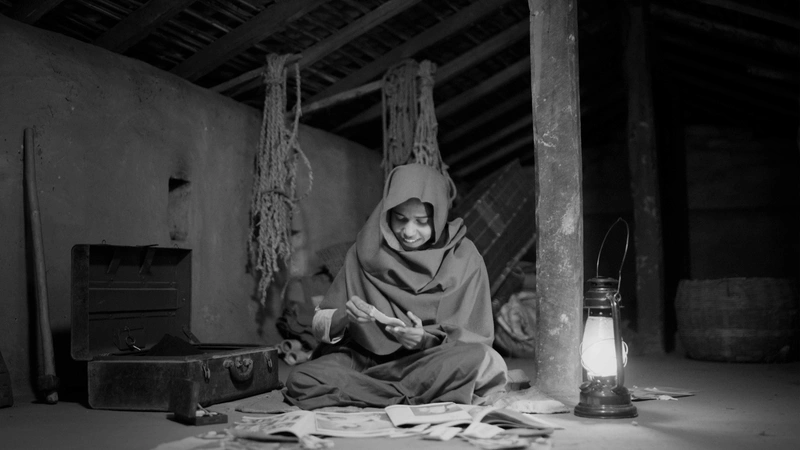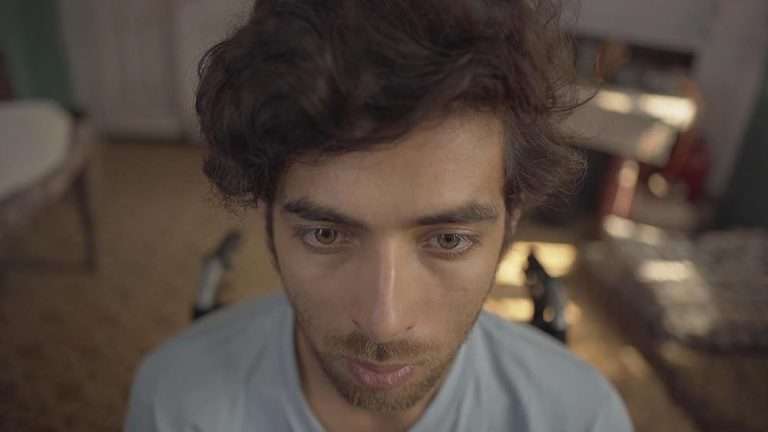To dream is inherently human. Nearly everyone has dreams, including the odd ones that visit us in our sleep. Then there are the aspirational dreams we yearn to turn into reality, which is to say that dreams are the most guileless and compelling snapshots that capture the fullness of living. And this is also why I consider cinema to be so important for the state of being.
The course of time, with its various technological advancements and streams of thought, has completely altered the state of cinema. Indeed, to such a degree that it almost mirrors the pure and undisturbed art of dreaming. However, FTI alumni Piyush Thakur, instead of focusing on the big-picture grandeur of dreams, focuses on the smallness of being, which makes all the difference.
In the 1960s, India’s social life was steeped in conservatism, shaping gender roles in public spaces like movie theatres. Records show that society strictly watched women’s conduct, particularly those from notable families. In cities, women comprised just 20-30% of movie audiences. “The First Film” doesn’t probe this moral climate. It tells a heartfelt story from rural Rampur. There, young Devi’s skin is lightened for marriage prospects. Her father, the cinema’s watchman, is quick to anger, especially when his meal is disturbed by music. He plans to marry her into a family where women’s freedom is severely restricted. And yet, it never views the rhythms of Devi’s day-to-day life pessimistically.
The story turns to nights when she gazes from her window, meeting Mohan. Together, they swap notes on Madhubala’s films. In these unwatched movies, they find a shared dream of comfort. Mohan may grasp this dream despite his struggles, unlike Devi. Yet, Thakur opts for a hopeful cinematic view, not the harsh realism of it all. He paints the story with the era’s essence, using a 1.66:1 aspect ratio and crisp, stylized storytelling, often through subtitles. This isn’t to sugarcoat the truth of the characters. Instead, the decidedly saccharine treatment at first only roots their circumstances to their earthy essence. The limitations of Devi’s life and Mohan’s language build up to a crescendo in the climactic moment, which is life-affirming and immensely moving to watch.

The narrative’s sweetness isn’t always beneficial. The film has an Anderson-like flair, yet it seems more imitative than original. This style, while nostalgic, disrupts the immersion at times. The background music, though consistent with the setting, seems fabricated. Nonetheless, it’s used sparingly. Piyush’s writing and direction are mature, respecting the audience. It subtly leads to an emotionally powerful climax yet is convincing enough not to feel manipulative.
The cultural exposition is crafted with care. Our grandparents cherished the arrival of new films, announced by poster-bearers with loudspeakers. This tradition enriches the story instead of being ornamental. Yet, it’s just a backdrop to the characters’ thrill. The image of Madhubala as Anarkali captivates Devi as she toils by the fire. Such clever writing shines through stellar acting. Priyanka Beriya, as Devi, delivers a powerful silent performance, symbolizing her character’s journey towards self-determination. Vasudev Nishad’s Mohan, though quiet, is expressively loud, and his sincere acting softens any overtones. The supporting cast adds a certain naturalism, embracing their flaws with vitality.
The film, in lesser hands or the service of a single-minded artistic pursuit, could have belittled social limits, eventually succumbing to a clichéd portrayal. It evenly halts before danger, underscoring the point. Yet, it plants a seed for a deeper narrative through cinema’s language, even perhaps an idea ripe for a feature film. “The First Film” remains an engaging tale of a woman pursuing her dreams—modest to some, yet wildly ambitious for her. Its black-and-white visuals highlight the lovable charm of aspirations over oppressive norms, adding layers to its significance.




![Spider-Man: Far From Home [2019] Review – Far From Greatness](https://79468c92.delivery.rocketcdn.me/wp-content/uploads/2019/07/Spiderman-Far-From-Home-768x316.jpg)
![The Love Witch [2016] : An Enchanting Feminist Bomb!](https://79468c92.delivery.rocketcdn.me/wp-content/uploads/2016/12/the-love-witch-768x432.jpg)
![Zero to Hero [2021]: ‘NYAFF’ review – A compassionate look at the Life of a Paralympic champion](https://79468c92.delivery.rocketcdn.me/wp-content/uploads/2021/08/Zero-to-hero-768x432.jpeg)
![This Is Not Berlin [2019]: ‘Tribeca’ Review: The Outsiders](https://79468c92.delivery.rocketcdn.me/wp-content/uploads/2019/05/this-is-not-berlin-1-768x385.jpg)